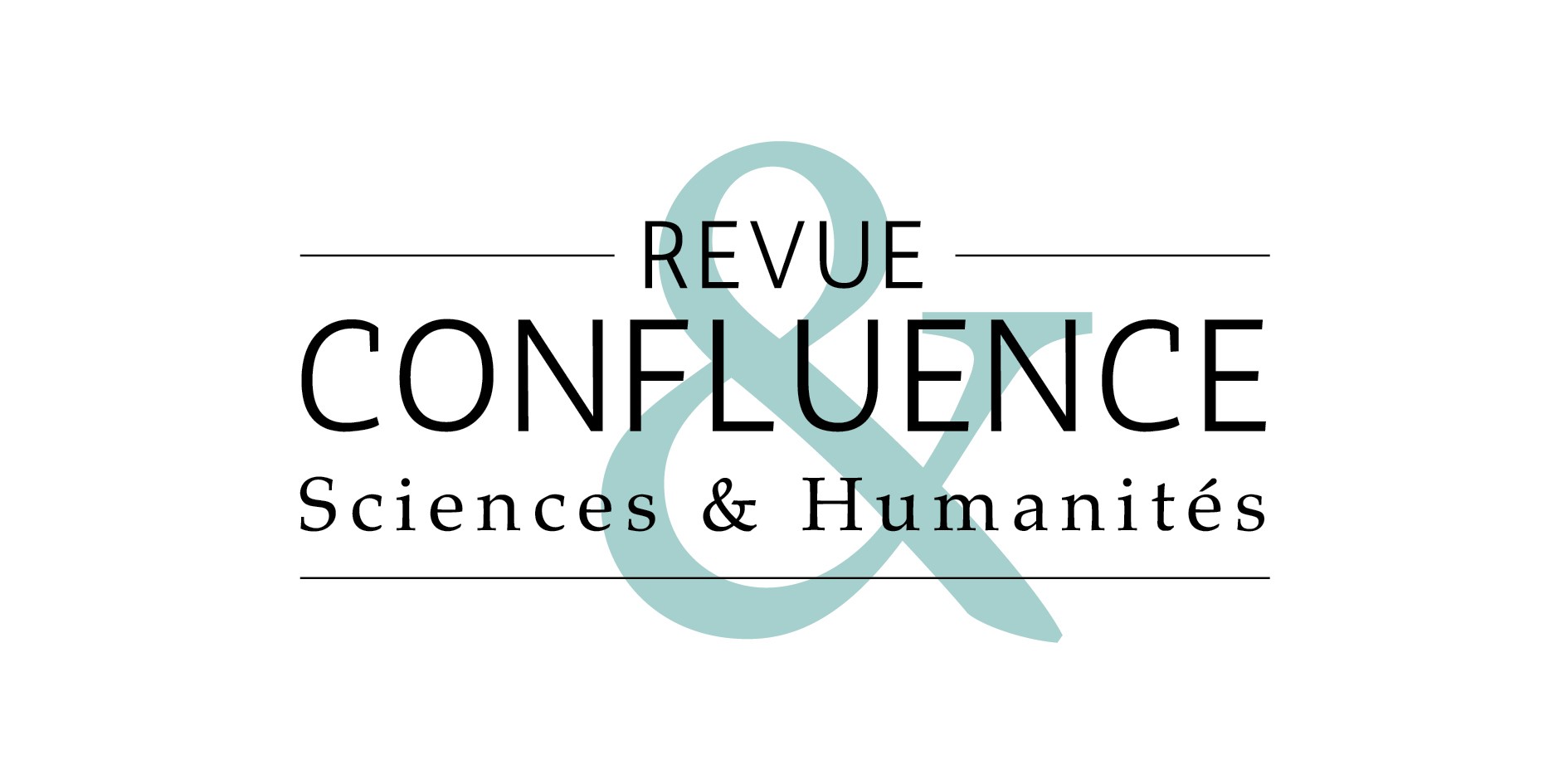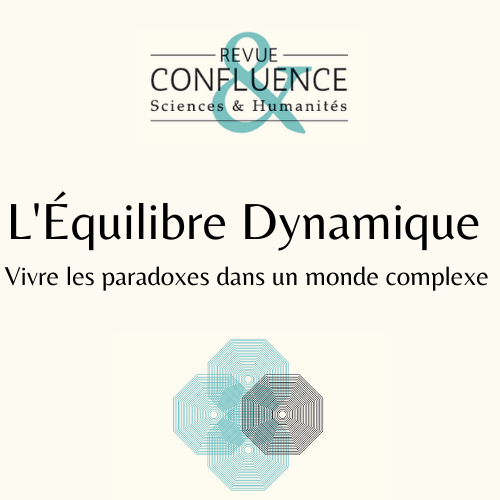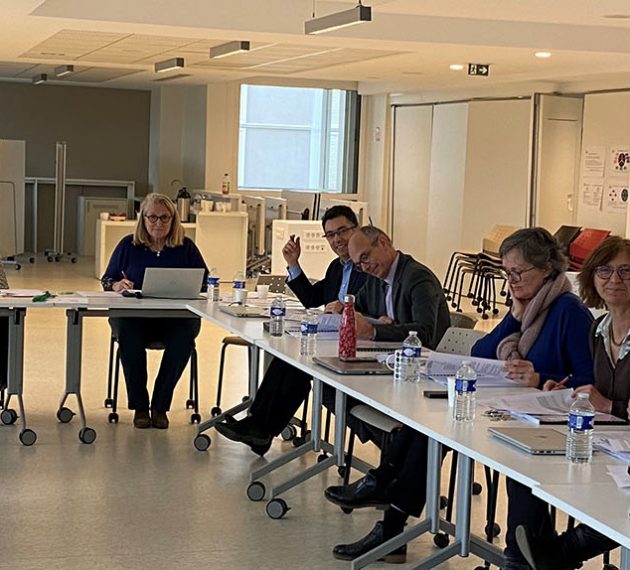
Presentation of the Journal
The CONFLUENCE Sciences & Humanities Journal, supported by the UCLy Sciences & Humanities Confluence Research Center, is at the confluence of life sciences and human and social sciences. The diversity of disciplines and units to which its committee members belong reflects its multidisciplinary and international ambition. UCLy is committed to exploring unique scientific objects by promoting cross-disciplinary perspectives.
Each article respects the rights of the individuals and the community. The Journal acknowledges several dimensions of the human being: physical, psychological, spiritual and religious, economic, social, with a focus on the dialogue between science, culture and faith.
The CONFLUENCE Journal offers two thematic issues per year, each consisting of four to six articles. Calls for contributions serve as a framework. The editorial committee asks for a pair of editors to coordinate the contents for each issue.
In addition to the thematic section, a Variety section may include:
- One or two articles that are not directly related to the thematic contents.
- An interview with researchers or experts. This section gives the floor to researchers from different disciplinary fields so that they can share the stages of their scientific career and the points of interaction with their lives.
- One or two reviews of literature or synthesis (review paper) on a specific subject and indicating new avenues of research.
Publication Policy
The CONFLUENCE Journal publishes original texts, of a maximum of 40,000 characters, in several languages (French, English, Spanish, German, or Italian), based on analytical elements, arguments, and participation in scientific debates. The journal meets precise scientific requirements in order to be able to benefit from demanding quality labelling in the future.
The articles are subject to a rigorous selection process, based on double-blind evaluations by two reviewers specialised in the themes of the article, including one from outside the journal, in order to guarantee the quality and pertinence of the published research.
The journal is published in paper format and all articles are freely accessible online as soon as a new issue is published on the journal's website. There are no publication or submission fees. The average time between submission and publication is approximately 50 weeks.
Exceptionally, the journal offers the possibility of proposing an original translation of a previously published text in another language. The proposal of the text will be made in agreement with the editorial board and questions of rights will be settled prior to publication. A maximum of two texts per issue of the journal will fall under this situation.


Last issue :
- n°1 : COVID & Vulnérabilités : access to full text
Journal Director
- Valérie AUBOURG, Director of the UCLy Sciences & Humanities Confluence Research Center
- Marina ROUGEON, Publishing Coordinator
- Olivier SAUVAGE, Publishing Officer
Editorial Board
Members of the UCLy Sciences & Humanities Confluence Research Center :
- Christine BOUVIER-MUH, Lecturer, Education, People, Support Department
- Claire BRUN, Professor, Integral Development, Ecology, Ethics Department
- Emmanuelle GORMALLY, Professor, Biosciences and Technologies Department
- François LESTANG, Professor, Theology, Philosophy, Religious Sciences Department
- Marjolaine MONOT FOULETIER, Professor, Legal, Political and Social Sciences Department
- Chiara PESARESI, Lecturer, Education, People, Support Department
- Anne-Sophie THELISSON, Lecturer, Sustainable Business and Organizations Department
- Aude VOLPILHAC, Lecturer, Culture(s), Imagination, Language, Department
External Members :
- Brigitte CHOLVY, Professor of Theology, Institut Catholique de Paris
- Alain FERNEX, Professor of Education Sciences, Université Lumière Lyon 2
- Pierre HAINAUT, Professor of Biology, Université Grenoble Alpes
- Claudia SERBAN, Lecturer in Philosophy, Université Jean Jaurès Toulouse 2
Scientific and Reading Committee
Under development
- Dominique AVON, Senior Scientist, École Pratique des Hautes Études (EPHE), Religious Sciences Section, France
- Zohra BARKA-DAHANE, Professor of Neurobiology, University of Science and Technology – Houari Boumediene, Algeria
- Dean DE LA MOTTE, Professor of Modern Letters, University Salve Regina, USA
- François DERMANGE, Professor of Ethics, University of Genova, Switzerland
- Graciela FERRÁS, Professor of Political Science, Universidad del Salvador, Argentina
- Massimiliano MARIANELLI, Professor of History of Philosophy, Università degli Studi di Perugia, Italy
- Deirdre MEINTEL, Professor of Anthropology, University of Montreal, Quebec City
- Bernard MEUNIER, CNRS Research Fellow, Institut des Sources Chrétiennes, History and Sources of Ancient Worlds Laboratory - HiSoMA UMR 5189
- Jean-Marc TALPIN, Professor of Psychology, Lumière University Lyon 2
- Nathanaël WALLENHORST, Lecturer in Education Sciences, Catholic University of the West
Article Submission and Evaluation Process
Articles should be sent to the following address: revueconfluence@univ-catholyon.fr
All articles submitted to the journal are evaluated according to the following procedures:
- An initial review by the journal's directorate, alone or with the help of the editorial board and issue coordinators, decides on the evaluation of the articles submitted to the journal. Articles that run counter to the editorial line and standards of the journal may be rejected by the editorial board without an evaluation report.
- A second, double-blind review: the author does not know the identity of the reviewers, and the reviewers do not know the identity of the author. There are at least two reviewers for each article, including one reviewer from outside the two committees.
- In case of doubt or differences of opinion between the assessors: additional opinions may be requested by the director of the journal.
- On the basis of the assessors' reports, the publication director takes one of the following three decisions:
- Acceptance of the text as submitted to the journal;
- Refusal;
- Acceptance subject to change. In the latter case, the journal management will take a final decision, positive or negative, depending on whether the author has taken into account the suggestions and comments proposed by the evaluators.
- Any text accepted, from the first submission, or after modification by the author, is the subject of editorial work carried out in consultation with the author.
- After acceptance of the final version of the submitted text, the authors will sign a distribution contract, without which the article can be neither printed nor published online.
Items in the Variety section (articles outside the thematic contents; interviews; literature reviews or reviews of synthesis) will follow the same selection process.
The article will respect the instructions to authors and the ethical and scientific integrity charter.
A lire aussi
The Confluence Sciences and Humanities Research Center has made vulnerability a key focus of its explorations. A decision explained by the center’s Director, Valérie Aubourg.

Scientific research at UCLy has become a priority which has led to the creation of this Research Center made up of eight research teams.

The Research Center brings together all of UCLy’s integrated teacher-researchers, doctoral students and specific administrative staff. Library staff participate.

